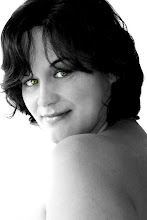Salvia Divinorum: Medicinal Herb or Legal High?
By RAYNIE ANDREWSEN
(I wrote this while a Staff Writer for my college newspaper)
Sage of the Seers
Salvia divinorum, an herb used by the indigenous Mazatec tribe of the Oaxaca region of Mexico, is a member of the mint family commonly referred to as Diviner’s Sage. The Mazatec have long cultivated the herb for medicinal and ritual use. Although the herb has been an effective treatment for arthritis, headache and eliminatory complaints, it is also used to induce visions during spiritual healing. The Mazatec Shaman call it ska Maria Pastora in reference to the Virgin Mary, and the name Salvia divinorum literally means sage of the seers.
The mind altering herb has been widely available since the mid ‘90s. Its leaves are often chewed, smoked, or made into a potent tincture effects of which include experiences of uncontrolled laughter to more profound altered states of consciousness. These effects last only a few minutes, much shorter than that of other well known psychedelics. In 2006, The National Survey on Drug Use and Health estimated that 1.8 million of the population aged 12 or older had used Salvia divinorum. Its widespread availability both online and in head shops across the country have made Salvia divinorum a popular legal high.
Are we having fun yet?
On the street it’s called Sally D or Magic Mint fetching a price of $50 to $100 per ounce producing effects that are intense but short lived. A hefty price for a 15 minute high, yet over 5,000 You Tube videos attest not only to its popularity but also to the psychoactive properties of the herb. Although Salvia divinorum is not known to be physically addicting or to cause psychological dependence, the experience can be extended or amplified by smoking more. The effects can range from subtle to a full-blown psychedelic experience.
The experience depends largely on the person. Powerful open and closed eye visuals, increases in sensuality, hallucinations, the sensation of entering other dimensions, alternate realities and altered perceptions, creative dreamlike states and experiences, delusional episodes, even contact with aliens and God have all been reported. Many people, however, find Salvia divinorum to be unpleasantly overwhelming; effects being more scary than fun due to overly intense experiences that often cause fear, terror and panic.
Coast to coast collegiate use
A recent study at the University of California-San Diego asked a random sampling of students to participate in an online survey of drug use that included Salvia divinorum. The sample of 1,516 college students showed a pattern of use indicating that Salvia divinorum is becoming a significant drug of choice. Studies at college campuses coast to coast have seen estimates as high as 7 percent, especially among males 18 to 25 where salvia use has become twice as prevalent as LSD and as popular as Ecstasy.
MiraCosta College student Justin said, “The first time I tried it I smoked it like a joint, it was mild, but the second time I took a bong hit and after a minute or so I was trippin’ hardcore. It was a little scary, but completely something else and over pretty quick…I haven’t used any since that night.” Salvia divinorum is easily obtained right here in Oceanside, sold in shops like Outer Limits Smoke Shop and Inner World’s infamous back room. However, Daniel J. Siebert, Pharmacognosist and prominent Salvia divinorum researcher warns, “Salvia is not like beer. It is a very intense mind altering drug that should not be sold in a casual way.”
Promising research in Jeopardy
The negative publicity generated by the misuse of the herb threatens to thwart the research being conducted on the herb’s medicinal value. Salvia divinorum’s primary active constituent is salvinorin A which has potential for the development of a wide variety of valuable medications. Considered non-toxic and non-addictive, the herb can provide safe, effective pain medications that are not habit forming and do not produce dependence.
The research is promising, opening up new areas for drug development. The new medications this herb can yield include safe non-addictive analgesics, short-acting anesthetics that do not depress respiration, antidepressants and drugs to treat disorders characterized by alterations in perception mainly schizophrenia, Alzheimer’s disease and bipolar disorder. Research suggests that Salvia divinorum often produces long-lasting clinical improvement in patients treated for depression, as opposed to conventional antidepressants which offer only symptomatic relief.
Big Brother is watching you
Headlines comparing Salvia divinorum to LSD and a single case of a Delaware student’s suicide in 2006 have fueled the ban of the herb in a number of states. Currently 25 states have legislation, or pending legislation prohibiting or regulating the herb including California. Effective Jan. 1, 2009, assembly bill no. 259 makes the sale of Salvia divinorum or salvinorin A to anyone under the age of 18 a misdemeanor punishable by imprisonment of up to 6 months or a $1,000 fine.
The Drug Enforcement Agency has listed the herb as a drug of concern and is considering classifying it as a Schedule I drug in a class with LSD and Marijuana. Any good that can be achieved from the research and development of this medicinal herb will vanish if the DEA convinces the federal government to criminalize the sale or possession of Salvia divinorum.
In his address to Congress, Siebert said “There is no reasonable justification for making Salvia divinorum a controlled substance. Placing it in schedule I would deprive people of a safe and useful medicinal herb, and it would seriously hamper promising medical research…It is important that its source plant, Salvia divinorum, remain available so that researchers can continue to study this important compound.”
Subscribe to:
Post Comments (Atom)

No comments:
Post a Comment